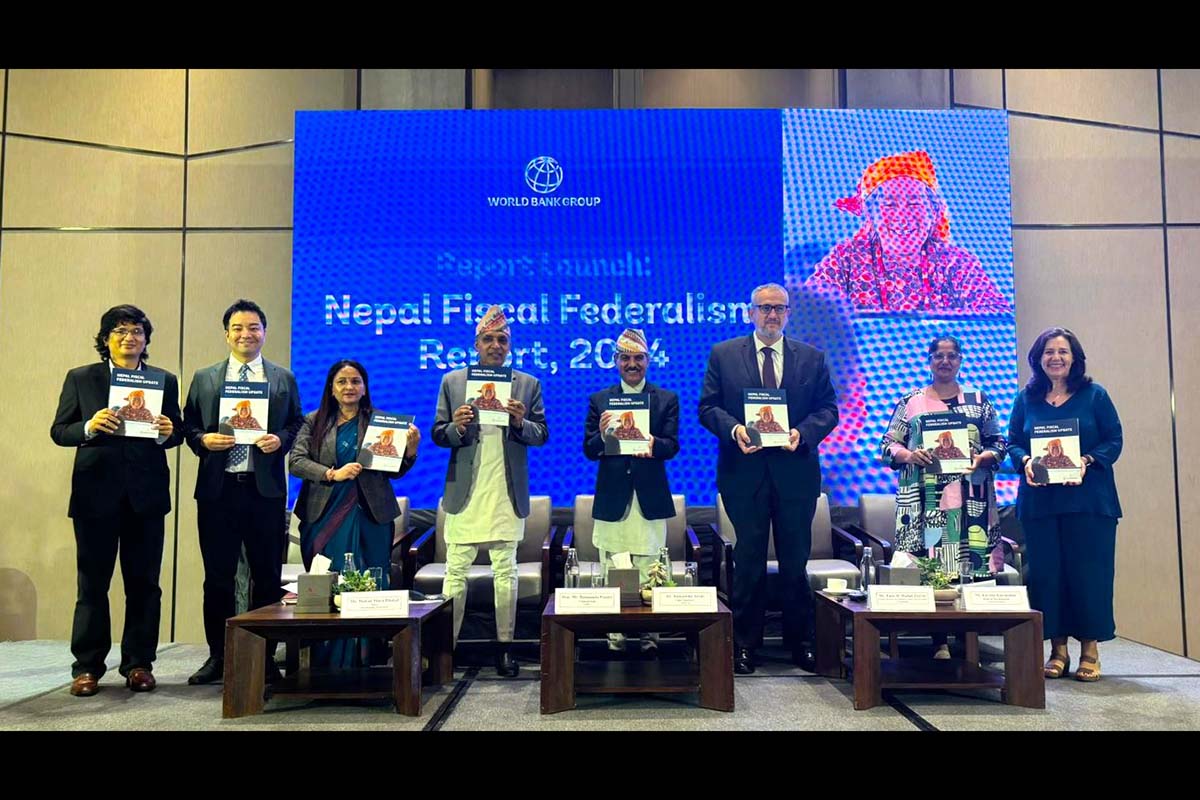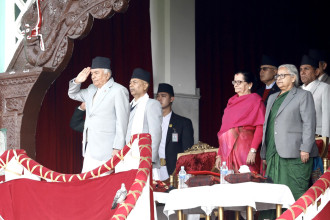
KATHMANDU: Nepal's legal and institutional reforms under fiscal federalism and public financial management at the provincial and local levels have continued, albeit at a moderate pace, according to the World Bank's Nepal Fiscal Federalism Update 2024.
A decrease in available financial resources for provincial and local governments in the fiscal year 2023, primarily due to a reduction in federal revenue, resulted in the first fiscal deficit at the subnational level since the inception of fiscal federalism in 2017. To enhance the outcomes of fiscal federalism and public financial management, including improved revenue generation for all three tiers of government, the Fiscal Federalism Coordination Division at the Ministry of Finance has been tasked with coordinating public financial management reform efforts and the development and implementation of a Fiscal Federalism Roadmap.
This report provides a comprehensive review of the progress of fiscal federalism in Nepal. The recommendations are well aligned with our national-level vision of smoothing the fiscal transfers to help subnational governments carry out their responsibilities effectively. The report also informs and supports our ongoing efforts to clarify responsibilities among the three tiers of government and advance fiscal federalism,” said Chief Secretary Baikuntha Aryal.
Building on the first edition of the Nepal Fiscal Federalism Update, the 2024 edition delves into the key pillars of fiscal federalism in Nepal: Revenue Assignment and Administration; Expenditure Assignment and Administration; Inter-Governmental Fiscal Transfers; Borrowing and Capital Finance; and Fiscal Revenue from Natural Resources. It suggests specific measures to enhance the Inter-Governmental Fiscal Transfer system and establish a consolidated public financial management performance database that includes data from the subnational levels to improve evidence-based decision making and transparency.
“The report highlights the need to upgrade institutional arrangements for the Intergovernmental Fiscal Transfers system to make the transfers more needs-based and timely, and to increase the fiscal autonomy of provincial and local governments, in order to improve fiscal federalism outcomes,” said Mr. Balananda Paudel, Chairman of the National Natural Resources and Fiscal Commission.
The report also recommends strengthening provincial and local-level institutional arrangements for fiscal federalism and public financial management operations, including actions to enhance budget credibility to improve the delivery of services by subnational governments.
“Fiscal Federalism is a foundation for sustained service delivery by provincial and local governments. They need adequate financial resources and the ability to make spending decisions at the subnational level, in the spirit of federalism and the Constitution,” said Mr. Faris Hadad-Zervos, World Bank Country Director for Maldives, Nepal, and Sri Lanka. “The World Bank is committed to supporting the Government of Nepal, in close collaboration with other development partners, to further solidify fiscal federalism in Nepal.”





-1771482900.jpg)
-1771480949.jpeg)